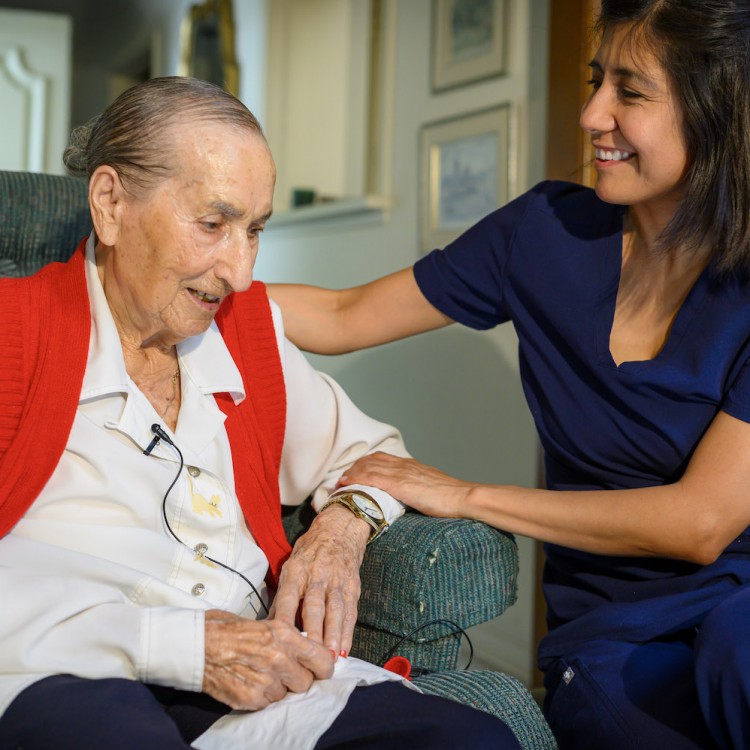What To Expect When Your Loved One Starts Receiving Hospice
The purpose of hospice care is to help you and your loved ones live life to its fullest during the final stage of a terminal illness. Though you may be confident the time is right for your loved one to begin hospice care, you may still be experiencing some fears about the unknown. While each hospice care plan looks different depending on the patient’s unique diagnosis and medical needs, there are a few things you can certainly expect when your loved one begins receiving hospice care.
First, it’s important to understand what exactly hospice is and what it’s not. Visiting Nurse Association (VNA) Hospice Care is there when traditional medical treatments no longer offer the hope of a cure. A patient may choose hospice care because their condition or illness is not improving and they have been diagnosed with a life expectancy of six months or less. If your loved one no longer wants to have painful or difficult treatments that likely won’t improve or extend his/her life, hospice will provide comfort care for the best quality of life .
In hospice care, highly qualified and experienced doctors, nurses, hospice aides, social workers, chaplains, bereavement coordinators, and volunteers work as a team with the patient’s current doctor to provide care meeting the medical, psychological, social, spiritual, and practical needs of patients and families. VNA Hospice Care involves a range of medical care and emotional support for terminally ill patients and their loved ones.
Our services include:
- Alzheimer’s & Dementia Experts
- Pain Management
- Nursing Services
- Hospice Aide Services
- Chaplain Services
- Medical Social Worker Services
- Bereavement Services
- Equipment/Supply Ordering & Setup
- Medication Ordering & Management
The services above are available to hospice patients and their families throughout care, and bereavement services continue after the patient has passed. Each hospice patient has four levels of care available depending on their needs. Some patients will stay at the same level of care throughout their time on hospice while others may move between the various levels as their needs change.
Here is what you can expect for each level of care:
Routine Home Care – Patients at this level usually reside at home (a private residence or a facility) and their symptoms are not controlled.
Inpatient Care – Inpatient care may be necessary if/when symptoms have worsened to the point they can no longer be managed at home. For this level of care, the patient may be temporarily placed in a skilled nursing facility or an acute care hospital to treat these symptoms until it is safe to return home.
Respite Care – Respite care can last for up to five days and allows a patient to be temporarily placed in a facility with 24-hour care so the family can rest. Respite can serve as relief to caregivers allowing them to step away from their loved one with peace of mind. During respite, it is important for caregivers to rest and care for themselves. The time respite provides helps caregivers to be fully present for their loved one when he/she returns home
Continuous Nursing Care – If the patient’s symptoms worsen to the point they can no longer be controlled by the caregiver, and does not want to go to a facility, hospice nurses will provide continuous, around-the-clock nursing care until the symptoms are controlled.
When a cure is no longer possible and aggressive treatment is no longer desired, hospice provides a compassionate approach to your end-of-life journey. The hospice ethos recognizes dying as a normal part of life and affirms patients’ choices for the end of life, neither hastening nor postponing the end. The ultimate goal of hospice is to maximize quality of life and can be provided for several months.
Overall, hospice care focuses on living life to its fullest and treating patients and families with the dignity and respect they deserve. No matter what your specific needs are, you can rest assured that VNA’s hospice care team will help guide you every step of the way.
For more information about VNA Hospice Care, contact Sarah Harris at (214) 535-2615 or email gethelp@vnatexas.org.
